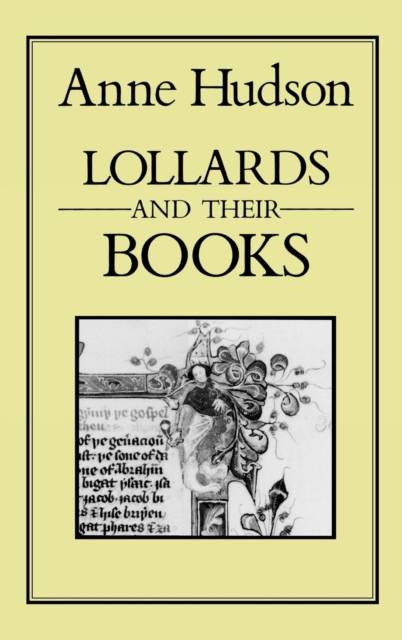
- Retrait en 2 heures
- Assortiment impressionnant
- Paiement sécurisé
- Toujours un magasin près de chez vous
- Retrait gratuit dans votre magasin Club
- 7.000.0000 titres dans notre catalogue
- Payer en toute sécurité
- Toujours un magasin près de chez vous
Description
The history of the Lollard movement is intimately concerned with their writings and literacy. The connection between the writings of Wyclif himself and Lollars popularisers in Latin and English has never been clear, especially in the crucial years between Wyclif's death in 1382 and archbishop Arundel's visitation of Oxford in 1411. Anne Hudson's work in this fields is the most important contribution to the subject. As editor of English Wycliffite Sermons and Selections From Wycliffite Writings, her work is based on a uniquely close study of the manuscript sources. Lollards and Their Books brings together the articles that she has published since 1971; together they make indisepensable reading for anyone interested in the history or the literature of the period. Anne Hudson shows that the debate on translating the Bible was not closed by the condemnation of Wyclif himself, but continued until Arundel's Constitutions; she examines the material for the life and work of John Purvey, for long held to be one of Wyclif's principal successors, and demonstrates the significance of the Opus Aruduum, written within the six years of Wyclif's death, as evidence for the progress of Lollardy in Oxford at that time. As well as discussing the dissemination of Lollard thought and the production of Lollard books, Anne Hudson discusses how far the Lollard heresy was connected with the use of English in theological topics, the examination of Lollards by the authorities, the links between Hussites in Bohemia and Wcyliffites in England as shown by manuscripts, and the printing of Lollard texts in the early years of the Reformation.
Spécifications
Parties prenantes
- Auteur(s) :
- Editeur:
Contenu
- Nombre de pages :
- 228
- Langue:
- Anglais
Caractéristiques
- EAN:
- 9780907628606
- Date de parution :
- 01-11-03
- Format:
- Livre relié
- Format numérique:
- Genaaid
- Dimensions :
- 156 mm x 234 mm
- Poids :
- 580 g

Seulement chez Librairie Club
+ 780 points sur votre carte client de Librairie Club
Les avis
Nous publions uniquement les avis qui respectent les conditions requises. Consultez nos conditions pour les avis.





